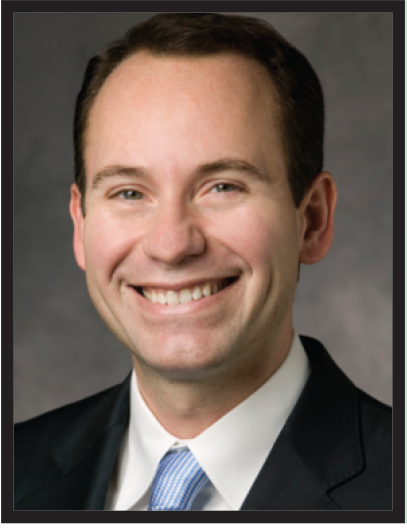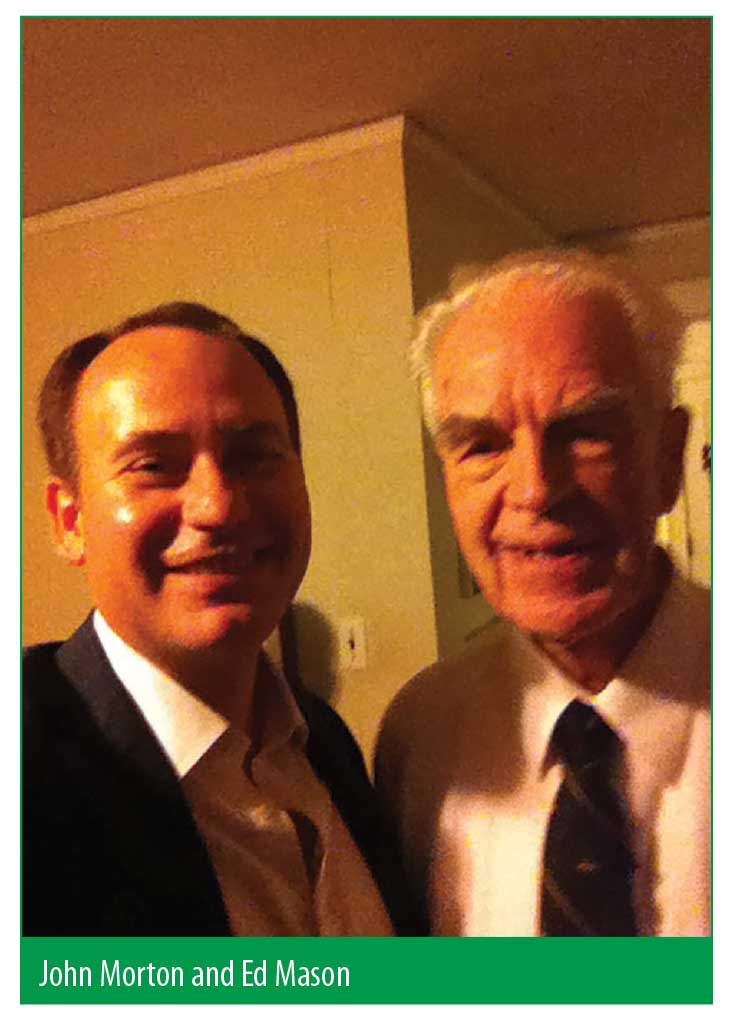Here’s to the Ones Who See Things Differently
 by John M. Morton, MD, MPH, MHA, FACS, FASMBS, ABOM
by John M. Morton, MD, MPH, MHA, FACS, FASMBS, ABOM
Clinical Editor of Bariatric Times; Vice-Chair of Quality and Division Chief of Bariatric and Minimally Invasive Surgery in the Department of Surgery at Yale School of Medicine in New Haven, Connecticut.
Dear Friends and Readers,
The surgical community and the world at large had a sad coda to the end of the worst year in memory. Dr. Ed Mason died on December 29, 2020, reaching his centennial year. Dr. Mason was our George Washington in bariatric surgery, the Founding Father. In 1966, when he performed the first gastric bypass, who would have envisioned our current state of health? One-third of the nation, calorically replete and nutritionally depleted. Dr. Mason did. He saw things differently.
I am a believer in serendipity. Chance plays a role in our lives. Furthermore, as Louis Pasteur stated, chance favors the prepared mind. Both chance and preparation played roles in Dr. Mason’s life. As a PhD surgeon in America’s heartland, he observed a curious side-effect from an ulcer operation he developed with his colleague Dr. Chikashi Ito, namely weight loss. He paid attention to the patient and the effect he and his operation had on the patient. The gastric bypass could have been consigned to the ash heap of ulcer operations had it not been for his insight and observation. That first gastric bypass has now engendered over three million weight loss procedures worldwide.
Had the clock stopped in 1966, we would have remembered Dr. Mason for his profound contribution. However, like most geniuses, Dr. Mason kept pushing forward. He strived to perfect the gastric bypass by changing pouch orientation from horizontal to vertical. He recognized that complications should be limited and strived to create a simpler operation—the vertical-banded gastroplasty (VBG). While the VBG was not the answer, it was testament to Dr. Mason’s creativity to continue to look for the answers. He believed in planned obsolescence—that the old should make way for the new, the past for the present.
Dr. Mason was far more than a surgeon. He was a sentinel for patient safety. He created the International Bariatric Surgery Registry to document the safety and efficacy of bariatric surgery. More than 20,000 cases were entered into the registry, which began 35 years before the Metabolic and Bariatric Surgery Accreditation and Quality Improvement Program (MBSAQIP). He kept these records and entered them by hand. He did this for one reason: he believed in what he did. He did not do this because he needed continuing medical education (CME) or had to complete for regulatory reasons or get promoted. He did it because he had to do it.
We all recognize the critical role that the electronic medical record, and potentially artificial intelligence, plays in medicine. Of the five books that Dr. Mason published, the first one was published in 1964 and it was titled, Computer Applications in Medicine. His last book was published in the last year of his life and it was his autobiography, A Fat Chance. His scholarship extended to 200 papers over his career. It is clear that he was a true generalist at heart who used his entire intellect, energy, and creativity to help others.
Dr. Mason was not alone in his endeavors. He was married to Dordana Fairman Mason for 71 years. She was a dietician who treated patients with anorexia, and he was a surgeon who treated patients with obesity. The conversation at the dinner table must have been memorable. They had four children, nine grandchildren and 13 great-grandchildren. He was a man of habit—he swam a half-mile every day until he was 96 years of age at the Iowa Field House.

Raul Rosenthal, Jaime Ponce, Ninh Nguyen, Georgeanne Mallory, and I had the great privilege of meeting Dr. Mason and his wife in person at their home. His home was at the end of a cul de sac, modest, and in the shadow of his beloved University of Iowa. He was a gentleman and a humble scholar. He treated his wife as she were made of gold. He chivalrously opened the door for her, slid her chair out for her, and lovingly held her with his hand on the small of her back. We went with the purpose of creating a video memoriam for him and to digitalize his great treasures: https://asmbs.org/mason-library. One object that we all held with reverence was that first 1976 organizing meeting pamphlet he held for 50 bariatric surgeons in his backyard. From this small gathering, a movement was begun.
Dr. Mason was a member of the Greatest Generation that faced a Depression and World War with equal dispatch. His genius did not come from Cambridge or New Haven or Palo Alto. He was a proud son of the Midwest, our nation’s heartland. He worked in surgery until his 70s, maintaining a respectful, self-effacing demeanor. I feel extremely blessed to have met him. During our lunch with him, I mentioned a project I was working on regarding the impact of adverse childhood events on weight loss. He complimented the work and told me about a similar project that he had worked on over 40 years ago.
We lost giants in bariatric surgery in 2020—Harvey Sugerman, Nicola Scopinaro, and now Dr. Ed Mason. Too many gone. All we can do is to honor these great contributors by rising to their standard.
I will close with the Steve Jobs quote, honoring genius. I have witnessed genius in Iowa—a 100-year, bright comet that blazed a trail for all of us to follow. Hitch your wagon to his star.
“Here’s to the crazy ones, the misfits, the rebels, the troublemakers, the round pegs in the square holes … the ones who see things differently—they’re not fond of rules, and they have no respect for the status quo. … You can quote them, disagree with them, glorify or vilify them, but the only thing you can’t do is ignore them because they change things. … They push the human race forward, and while some may see them as the crazy ones, we see genius, because the people who are crazy enough to think that they can change the world, are the ones who do.”
Sincerely,
John M. Morton, MD, MPH, MHA, FACS, FASMBS, ABOM
Category: Editorial Message, Past Articles




